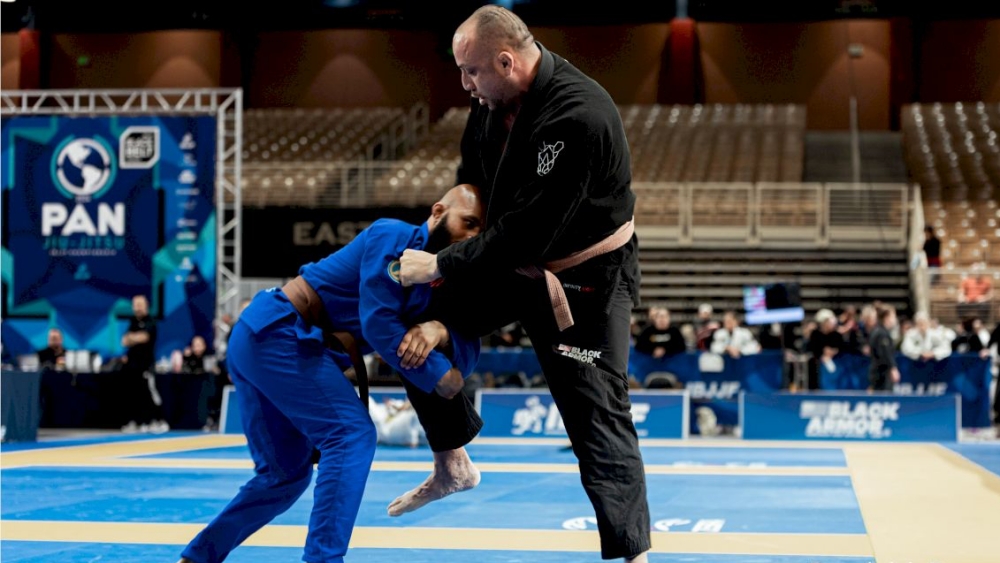Yes, we understand that the art of Brazilian Jiu-Jitsu (BJJ) is all about the smaller, weaker person using leverage and technique against a bigger and stronger opponent. But what if we were to say that strength training would help your BJJ training immensely?
The topic of strength training for Brazilian Jiu-Jitsu (BJJ) certainly provokes much discussion. It is a universally acknowledged truth that practicing more BJJ is crucial for improving skills in the sport, however, having a strength advantage within your weight class also brings its benefits. Consider a hypothetical scenario where two individuals, each weighing 65 kilograms and possessing equivalent skill levels in BJJ, are pitted against each other. If one of them can deadlift 120 kilograms while the other cannot, who would likely emerge victorious in the match? The implication is clear: the stronger individual may have the upper hand.
One thing’s for sure though, strength training won’t make you better at Brazilian Jiu-Jitsu. It won’t replace those hours you spent drilling the berimbolo or attending classes. It will, however, make you stronger.
Today, Evolve University is pleased to share a beginners’ guide to BJJ strength training:
1) Enhance Strength To Boost Your Strength-To-Weight Ratio, Not To Increase Mass
The goal in training strength for Brazilian Jiu-Jitsu is not to be as strong as the Incredible Hulk – you should instead aim to be strong for your weight. With that said, you shouldn’t be worried about bulking up. If you’re training BJJ consistently, chances are, you’re pretty good cardio-wise and quite unlikely to put on extra bulk or muscle mass.
2) Work On Strength Movements That Work The Entire Body As A Single Unit To Get Stronger In The Positions You Need For BJJ
Squats: Have you ever tried standing up in someone’s closed guard? If you have, you’d have noticed that you needed quite a bit of strength to stand up and base out. Squats are great way to build strong legs, glutes, hamstrings, and back.
Deadlifts: Passing the guard, stuffing takedowns, and pinning your opponent could get so much easier once you work on your deadlifts. Deadlifts strengthen your hamstrings, hips, and core. They also greatly improve your posture and grips!
Kettlebell Swings: In the past, we’ve talked about how kettlebell swings are a great way to build cardiovascular endurance and explosive power as they strengthen your posterior chain, wrists, and arms. They’re also a great way to work on your grips!
Pull-Ups: Not only will pull-ups improve your grips, it also works on your entire upper body. If you notice, there’s a lot of pulling movement in BJJ – takedowns, pulling someone in for the cross choke, or even securing a dominant position. Pull-ups will no doubt improve your overall BJJ game.
Turkish Get Up: In BJJ class, you’ve probably learned how to do a technical stand-up. A Turkish get up is practically the same thing, but with resistance. It’s an awesome way to work all-around strength and balance, which are definitely musts for BJJ or any other martial art. More challenging than a normal lift, the Turkish get up requires shoulder stability and control, leg drive, core strength, and full concentration!
Rows: Rows are one of the best exercises you can do to improve your strength for BJJ. Just like the pull-up, it works on your pulling strength. The more you practice BJJ, you’ll notice that you often use the pulling motion as you grab someone’s gi to secure positions, to pull him over you for a sweep, to pull him into your guard – the list goes on and on.
3) Supplement BJJ Training With Strength Training, Not Replace It

Although it’s a great idea to work on your strength for BJJ, you should keep in mind that your reason for strength training is to supplement your BJJ and not replace it. With that said, you should limit your strength training to just a 3-5 hours a week. If you train regularly, you could even lessen your strength training time to 1-2 hours and still see improvement.
4) Eat well

To increase lean muscle mass, you need to increase your calorie intake too. It doesn’t mean that you should go crazy at the buffet line – stick to lean proteins, fruits, and vegetables. If you don’t nourish your body properly, it will be more difficult to gain muscle, even if you’re working hard on your strength.
As with any strength training program, you must remember to gradually increase the load you’re lifting in order to see the greatest gains. Don’t get complacent; everyone needs a challenge every now and then. Who knows, strength training might just be the key to take your BJJ aptitude to the next level.
So tell us, when will you start your strength training program for BJJ?
You may also like:










